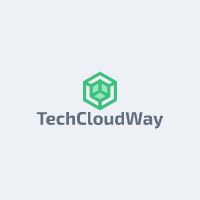Blockchain technology is revolutionizing the world of finance. It has the potential to transform traditional banking, making it more efficient, secure, and transparent. But what exactly is blockchain? How does it work? And how is it disrupting the finance sector? In this blog post, we will answer all these questions and more.
So fasten your seatbelts as we take you on a journey through the future of finance with blockchain technology!
Understanding Blockchain Technology
Blockchain technology is revolutionizing the finance industry by offering transparency and security through its decentralized nature. It eliminates the need for intermediaries, reducing costs and increasing efficiency. Smart contracts on blockchain automate processes, reducing errors and streamlining operations.
Beyond finance, blockchain has the potential to transform various industries. Its application in analytics, risk management, artificial intelligence (AI), machine learning, and robotic process automation (RPA) enables better decision-making and financial management. By freeing up valuable time previously spent on repetitive tasks, blockchain empowers professionals to focus on strategic planning and making informed decisions in the digital world.
What Are The Basics Of Blockchain?
Blockchain is a decentralized and distributed ledger technology. Each block in the blockchain contains a set of transactions. These blocks are linked together using cryptographic hashes. The immutability and transparency of data are ensured by blockchain technology. Consensus algorithms play a crucial role in reaching an agreement on the state of the blockchain.
With the basics of blockchain in place, it sets the foundation for the future of finance. By leveraging analytics, artificial intelligence (AI), and machine learning, blockchain can revolutionize various aspects of the finance function. Blockchain can automate processes, reduce the risk of errors, and free up valuable time for financial management and decision-making in the digital world.
Blockchain And Cryptocurrency: The Connection
Cryptocurrencies like Bitcoin rely on blockchain technology to facilitate secure and transparent transactions. The decentralized nature of blockchain eliminates the need for centralized authorities in cryptocurrency transactions, ensuring greater accountability. Every cryptocurrency transaction is recorded on the blockchain, creating a transparent and immutable ledger.
Furthermore, blockchain technology has enabled the creation and distribution of new cryptocurrencies, expanding the possibilities within the digital world of finance. By harnessing the power of blockchain and cryptocurrencies, individuals and organizations can make better decisions, save valuable time, and disrupt traditional banking systems. This connection between blockchain and cryptocurrency is reshaping the future of finance, paving the way for innovative solutions and transforming the financial management landscape.
The Impact Of Blockchain On Traditional Banking
Blockchain technology has the potential to significantly impact and revolutionize traditional banking. Banks can streamline their processes by leveraging blockchain, increasing efficiency and reducing costs. One of the key advantages of blockchain in banking is its ability to enhance security and protect against fraud.
Additionally, traditional banks can benefit from faster cross-border transactions by utilizing blockchain technology. Beyond these efficiencies, blockchain can potentially disrupt traditional banking business models by enabling new decentralized financial services and eliminating the need for intermediaries. This technology is paving the way for the future of finance, transforming the industry and making it more secure and efficient.
1. Advantages of Blockchain In Banking
Blockchain technology in banking offers several advantages. Firstly, it enables faster and more efficient transactions, improving the overall speed and effectiveness of banking processes. Additionally, blockchain increases transparency and traceability, allowing for better transaction accountability and trust.
Another advantage is its enhanced security, as blockchain can reduce the risk of fraud and protect sensitive data. Furthermore, smart contracts on the blockchain automate and streamline banking processes, eliminating the need for manual intervention. Lastly, blockchain facilitates cross-border transactions without intermediaries, making conducting global financial transactions easier and more cost-effective.
2. Challenges For Banks Adapting To Blockchain
Adapting to blockchain technology poses several challenges for banks. One key challenge is the significant investment required to update existing infrastructure. Additionally, regulatory hurdles and compliance issues can hinder the adoption of blockchain in banking.
Another challenge is ensuring interoperability between different blockchain networks, which requires collaboration and industry-wide standards. Banks must also prioritize data privacy and protection when adopting blockchain, as the technology operates in a digital world with evolving cybersecurity threats. Overcoming these challenges will pave the way for banks to leverage blockchain’s potential to streamline processes, enhance decision-making, and revolutionize the future of finance.
The Role of Blockchain In The Future Of Finance
Blockchain technology is set to revolutionize the financial services industry, providing a decentralized and transparent framework that can reshape traditional banking systems. Introducing smart contracts on the blockchain will automate complex financial agreements, making processes more efficient and secure. With its potential to disrupt traditional banking and payment systems, finance professionals must acquire technical skills related to blockchain to capitalize on future career opportunities.
Embracing the future of finance means embracing analytics, risk management, artificial intelligence (AI), machine learning, and robotic process automation (RPA) to improve decision-making and optimize financial management. By automating repetitive tasks, finance professionals can focus their valuable time on strategic planning and making better decisions in the ever-evolving digital world.
Preparing for a Blockchain Revolution in Finance
Finance leaders must acquire technical skills in blockchain and its applications to prepare for the future of finance. Understanding concepts like decentralized finance is essential as blockchain revolutionizes the industry. This technological shift will create new career paths, demanding professionals who can navigate the digital world of finance. Financial institutions must embrace digital transformation to fully leverage blockchain’s potential and stay ahead of the competition.
Investing in blockchain research and development is crucial for organizations to adapt and thrive in this rapidly evolving landscape. By embracing these changes, they can make better decisions, save valuable time, and drive innovation in the finance function.
The Final Say
Blockchain technology is revolutionizing the traditional banking sector. With its decentralized and transparent nature, blockchain offers numerous advantages, such as increased security, efficiency, and cost-effectiveness. However, it also challenges banks to adapt to this disruptive technology.
As we move towards the future, blockchain is expected to bring significant changes to banking, including improved financial transparency and trust. While it may not make traditional banking obsolete, it will certainly reshape the industry and require banks to evolve and embrace innovation. Financial institutions must educate themselves, explore potential use cases, and prepare for future changes to stay ahead in this blockchain revolution.


